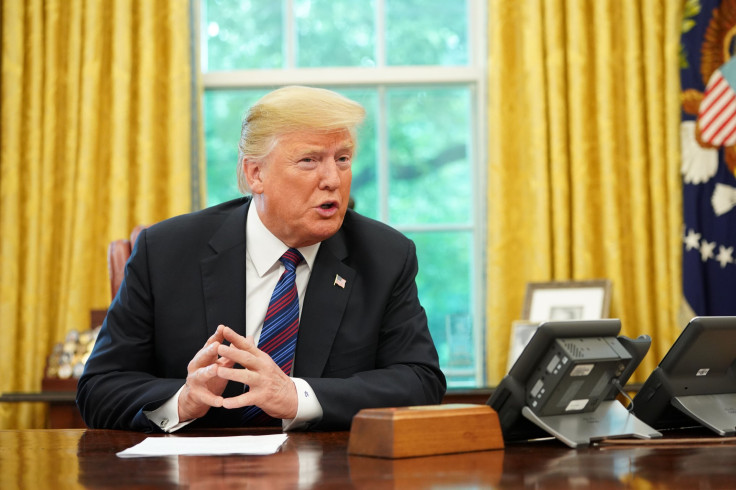Will Trump Get Re-Elected? President Likely Winner In 2020 Based On Predictive Models But There's A Caveat

A Wall Street financier, who was an adviser during the Obama administration, predicts that President Trump will easily win re-election, as long as the election isn’t held today.
In a New York Times op-ed piece on Monday, Steven Rattner said the state of the economy ranks high in the minds of voters when considering re-electing a sitting president and the president appears to have a “meaningful tailwind.”
President Trump and First Lady Melania Trump return to to the White House after their visit to Japan. pic.twitter.com/hfiLiTsRfT
— The Hill (@thehill) May 28, 2019
That is, as long as the election isn’t held today since the same models that predict Trump’s sure win in 2020 also predict a sure loss today by as much as eight percentage points against most of his top Democratic challengers.
One of the first and “perhaps still the best” of these models was created by Yale Professor Ray Fair, an expert in macroeconomics. The 76-year-old John M. Musser Professor of Economics spent several years at Princeton University before Yale and completed his Ph.D. at the Massachusetts Institute of Technology (MIT).
Fair’s model has found growth rates of gross domestic production and inflation are the most important economic predictors, along with incumbency, to assist in determining outcomes of presidential elections. His predictions have been remarkably accurate over the last three presidential cycles.
The 2020 elections will be the make-or-break election for economic-centered prediction modeling.
— Josh Kraushaar (@HotlineJosh) May 28, 2019
Most-cited prediction model (from Yale's Ray Fair) has Trump winning 56% of the vote in 2020.https://t.co/8CIq0YhIWq
In 2008, he predicted Barack Obama would receive 53.1% of the vote, and he actually received 53.7%. As a sitting president running for re-election, Fair’s model predicted Obama’s share of the vote at 51.8%, just two-tenths off of the final outcome at 52%. Obama’s incumbency helped to offset the still-recovering economy in the second contest, Rattner argued.
In 2016, after eight years of a Democrat, it was more than likely voters would select a Republican since only one two-term president (Reagan) has been followed by a president from the same party (Bush) since 1952.
In 2020, Trump will enjoy a significant lift as incumbent since a “vast majority” of presidents are elected to a second term.
Biden campaign tears into Trump for criticizing former vice president on foreign soil https://t.co/vQ1rt92CZo pic.twitter.com/xXmBmQW98k
— The Hill (@thehill) May 28, 2019
Given what also appears to be a vibrant economy, Trump’s likely share of the vote should be as high as 56.1%, according to Fair’s model. But that’s before factoring in the president’s personality, Rattner said.
However, recent polls show if the election were held today, Trump would lose to most of the Democratic hopefuls, and by as much as eight percentage points against Democratic frontrunner Joe Biden.
Rattner also pointed out the Fair model is not the only one touting a Trump 2020 victory. Trump wins in all 12 models examined by Mark Zandi, chief economist at Moody Analytics. In addition, an examination of the electoral college by Donald Luskin of Trend Macrolytics draws the same conclusion.
The kicker, then, becomes whether the president can overcome an adverse perception of his personality by a majority of voters, in addition to averring potentially negative outcomes from ongoing congressional investigations into his administration.
© Copyright IBTimes 2024. All rights reserved.





















